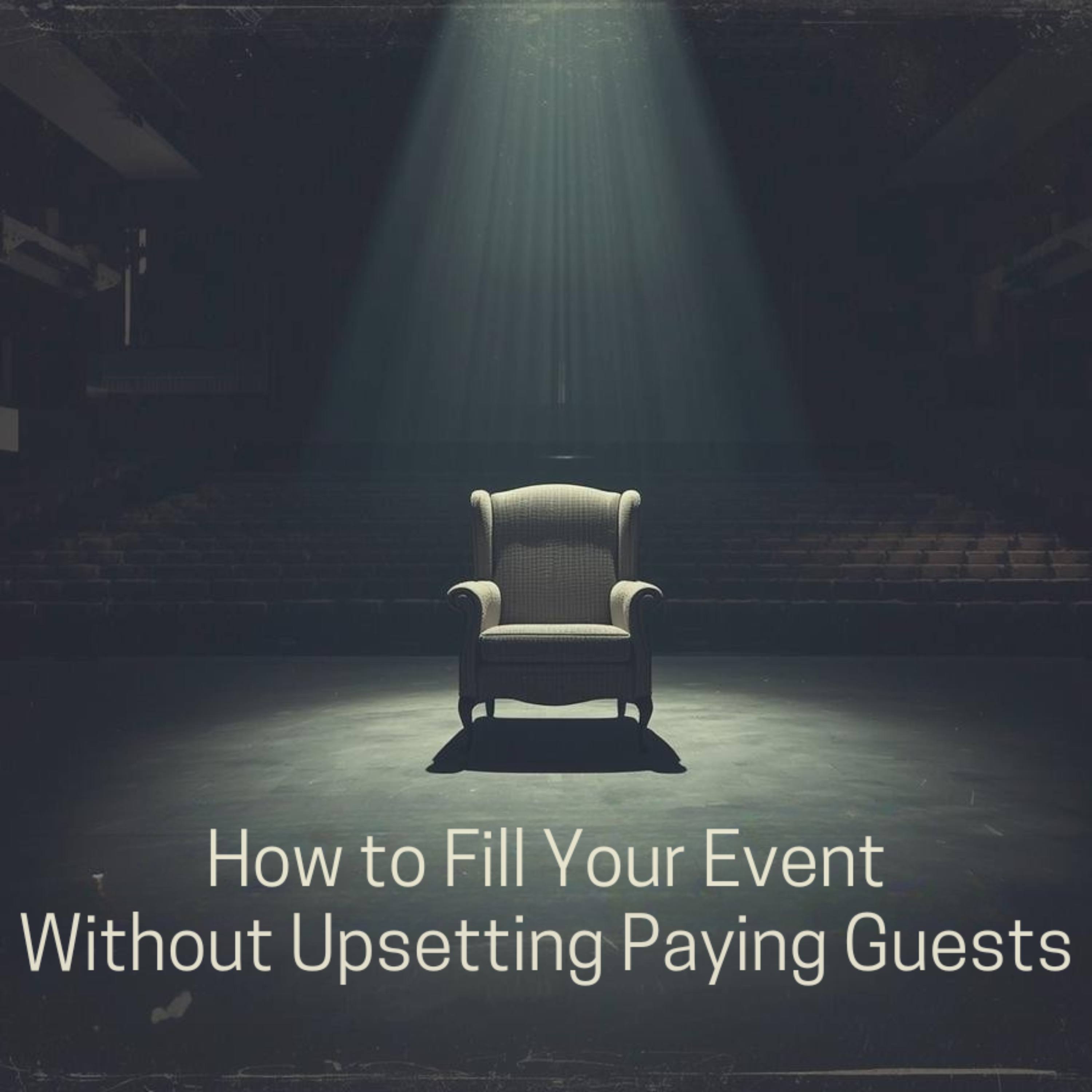Papering the Room: How to Fill Seats Without Losing Trust

We’ve all been there. You see the marketing for an event and think, Yes, that’s me. They’re my people. I want to be in that room. You commit, buy your ticket, maybe even book flights and accommodation, and start getting excited.
Then a few weeks later, you see the same event splashed across social media with a big fat “2-for-1 tickets!” offer. Suddenly, that excitement feels a little sour.
This is exactly what happened to a friend of mine, and it sparked this conversation.
My friend is a discerning buyer. She doesn’t throw money at just anything. For her, the biggest investment isn’t even the ticket price, it’s time. She chose carefully, committed, and not only paid for a ticket but also flights, accommodation, and meals to attend interstate.
That’s a big deal. And she was excited. Until the event organiser went public with a 2-for-1 offer. In one swoop, her ticket’s value halved. She wasn’t just frustrated — she reached out to the organiser with some constructive ideas on how they might sell better next time. Instead of welcoming the advice, the organiser pushed back, refunded her ticket, and told her not to come.
The ticket cost was covered, sure. But the flights and accommodation? Gone. The whole experience left her angry and shut out.
Let’s be fair: selling tickets is hard. When you promise a high-energy event with hundreds of people, but only sell half the seats, you’ve got a problem. The vibe falls flat, the photos don’t look great, and the experience isn’t what was advertised.
This is where “papering the room” comes in. Giving away tickets to fill empty seats. When done well, it can save an event. A half-empty concert feels awful. A full one, even if some seats were free, delivers a better experience for everyone.
But when it’s done badly, like my friend’s situation, it can backfire spectacularly.
I learned this the hard way at major week long conference that had a global following and had been on my bucket list for years. I bought a music ticket, expecting access to all music events. When they couldn’t sell enough, they gave away platinum passes — the top tier, worth around $1,800 — for free. Families walked in with VIP lanyards while I, a paying customer, was shut out of big-ticket sessions.
I left early, feeling ripped off, and I’ve never gone back.
But Sometimes you do need to give tickets away. The trick is to do it without upsetting the people who’ve already paid. Here’s how:
- Choose carefully who gets them.
Instead of going public with discounts, look for community groups, charities, carers, or schools who would truly benefit. Give complimentary tickets quietly, and you’ll be adding value without undercutting your audience. - Make sure they show up.
Free tickets often go unused. If you hand them to a group, set the expectation that those seats must be filled. Empty chairs help no one. - Keep it discreet.
Don’t splash 2-for-1 deals all over your socials. Nothing irritates a full-price ticket holder faster. Be respectful, and don’t make them feel like they wasted their money. - Upgrade, don’t downgrade.
If you must paper the room, reward the people who bought early. Give them unexpected upgrades or perks so they walk away saying, I got more than I paid for, not less.
Selling tickets is tough, and sometimes you’ve got to fill the room however you can. But never at the expense of the people who’ve invested in you from the start. They’re your champions, treat them like it.
Want to dive deeper into this and hear the full story (including my personal experience (yes, I name and shame!)? Tune into this episode of The Event Show: Papering the Room: How to Fill Seats Without Losing Trust. Because when it comes to events, how you fill the room matters just as much as who you fill it with.
Ready to take your own event planning to the next level? My 8 Week Event Plan is opening soon. Jump on the waitlist at 8weekeventplan.com to explore.



